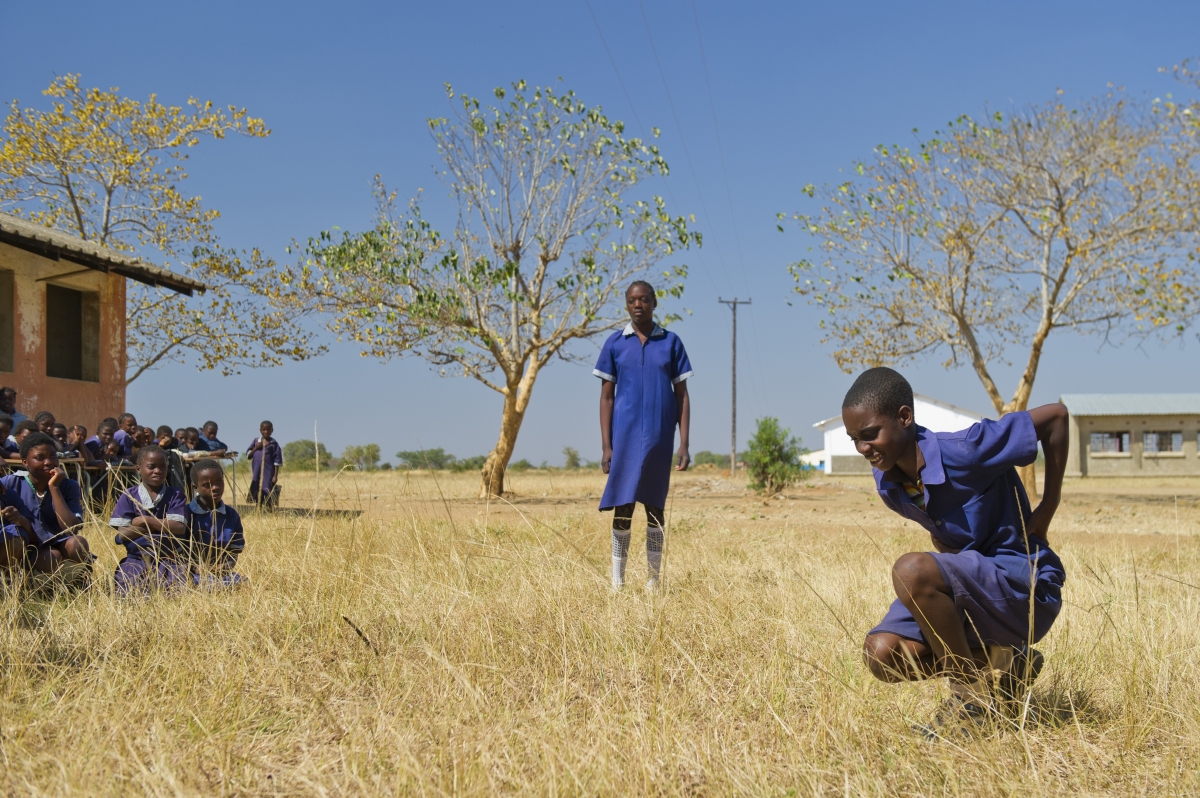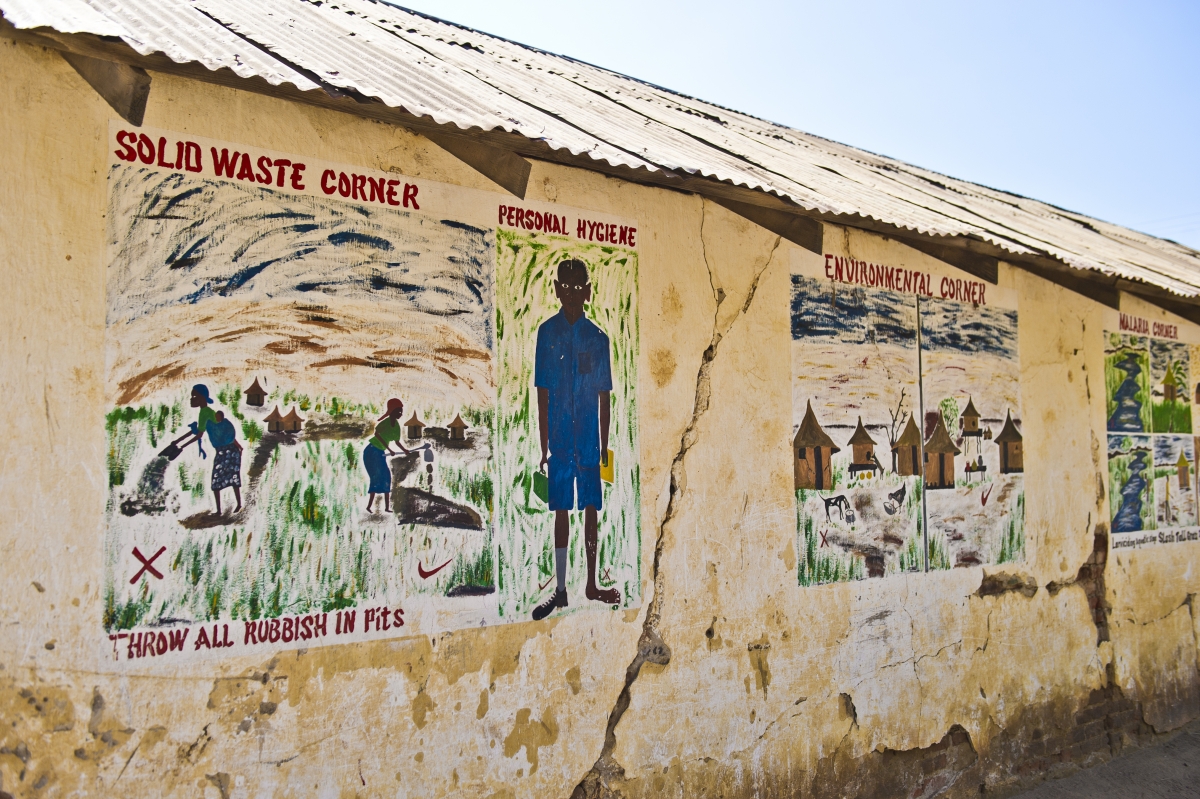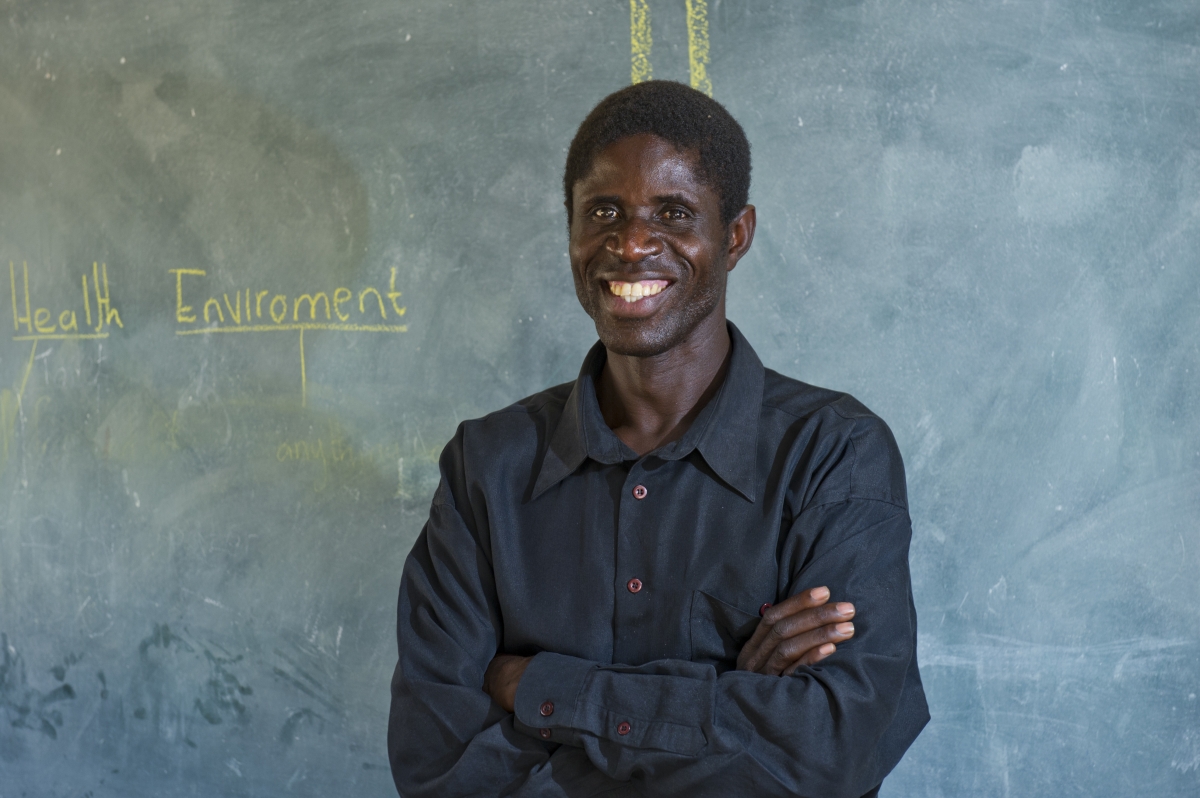WASH in Schools in Zambia: Education affects multi-generational change
|

Schoolchildren in rural Mazabuka Province, a 3 hour drive out of Lusaka, Zambia, are learning vital lessons in water, sanitation, and hygiene. Part of an integrated approach involving infrastructure impr ovements, capacity development, and peer educators who lead school-led total sanitation, WASH in schools is a central focus of Africare, an organization that specializes in community education, empowerment, and participation.
ovements, capacity development, and peer educators who lead school-led total sanitation, WASH in schools is a central focus of Africare, an organization that specializes in community education, empowerment, and participation.
Africare implements school programs that encourage healthy behaviors through a curriculum that draws the connection between disease and unsafe health practices such as use of contaminated water. Students learn through visual and verbal demonstrations, peer education (two leaders from each grade level), and inte ractive education. Children from ages 8 to 16 perform plays, pantomime, poetry, song, and dance, all showcasing lessons on staying healthy, and what happens when you don't follow safe WASH practices. They also paint “Talking Walls,” pictures on the walls outside their schools that demonstrate safe health practices. These performances and pictures and the messages they carry are powerful, reaching not just other school children, but the community at large.
ractive education. Children from ages 8 to 16 perform plays, pantomime, poetry, song, and dance, all showcasing lessons on staying healthy, and what happens when you don't follow safe WASH practices. They also paint “Talking Walls,” pictures on the walls outside their schools that demonstrate safe health practices. These performances and pictures and the messages they carry are powerful, reaching not just other school children, but the community at large.
One interesting program conducted by the Africare community trainer is called the ‘Walk of Shame,' where school children go out as a class and identify open defecation, and on-the-spot messages on the importance of latrines are reinforced. “This program is very effective and repairs the sanitation behaviors of the children,” commented Alfred Mungamelo, Community Led Total Sanitation Advisor for Africare's WASH in schools program. “It all starts in the schools, then is taken to the home, and then the community. Children have a low resistance to change so easily adopt wat/san practices. If you educate a child, you educate not just that child, but their family, their community, and the next generation. The parents' reaction to the program is positive. The children are teaching the families. The parents say ‘I cannot reject what my child is teaching me.' When you are empowering children, you are affecting the next generation, until eventually sanitation is an inborn thing.”

Alfred's passion combined with purpose has made headway for credibility and effectiveness in the communities where Africare programs operate. His passion and purpose is contagious; Alfred is not only a champion health advocate and community empowerer, but someone who inspires others in the community to be the same. “Transformation is useless without the mind-set of transformation.”
School principals and teachers are also reaching the greater community through Africare's WASH in schools program. Nachipooma Basic School was the first school in its community, and has ultimately provided benefits beyond education. Africare began its partnership with this school in 2007, when makeshift latrines were flooded beyond repair. Africare built 5 latrines and provided vacuum tanks to empty them, and also educated school staff on sewer maintenance. The new toilets were initially regulated for student-use only, but the Principal Eugene Nchimunya noted on reflection, “Everybody needs to use a latrine, and not everybody has one they can use. So I changed my heart. The toilets at the school are now used by the entire community as needed, contributing to decrease in open defecation and increase of sanitation in our community.”
In Mukuyu Village, the community is learning from their children and taking responsibility on themselves to build latrines, rather than waiting for aid. “One latrine per household” was the mantra of Mukuyu Village, where Africare extends its wat/san education, encouragement, and empowerment. Each household has built their own latrine with their own resources.
Our day in Mazabuka Province with Africare was filled with inspiration. It seemed like everybody we met, from the student, principal, and peer educator, to the community trainer and lay community member, was passionate about health and sanitation and improving their lives and their community as a whole.
In speaking on community empowerment and behavior change through WASH in schools and the importance of education and change starting with the child, Alfred left us with this poignant quote: “You can even change the world from a single drop.” Alfred and Africare, we think you are doing just that, and congratulate your efforts; they are an inspiration to all of us.
-- Lisa Anderson, Program Assistant for the Vaccine Development Global Program at PATH
Photo credits, top to bottom: PATH/Gareth Bentley (1-4), PATH/Lisa Anderson (5-6)














